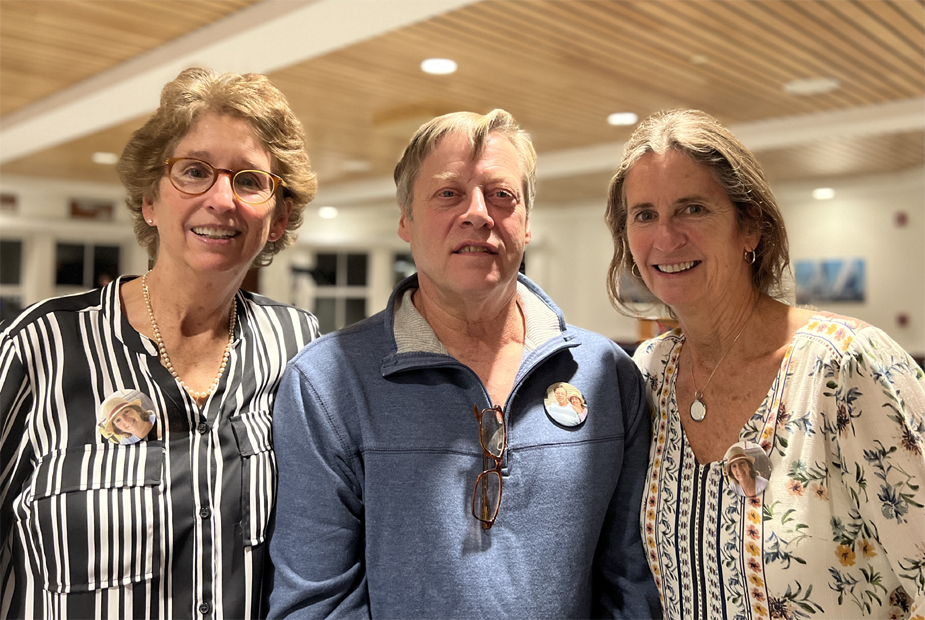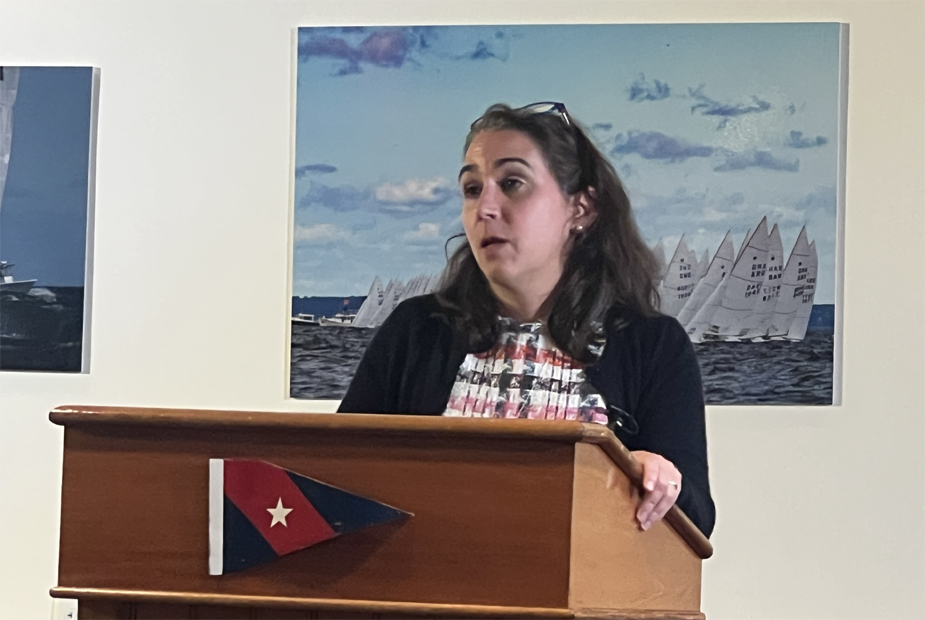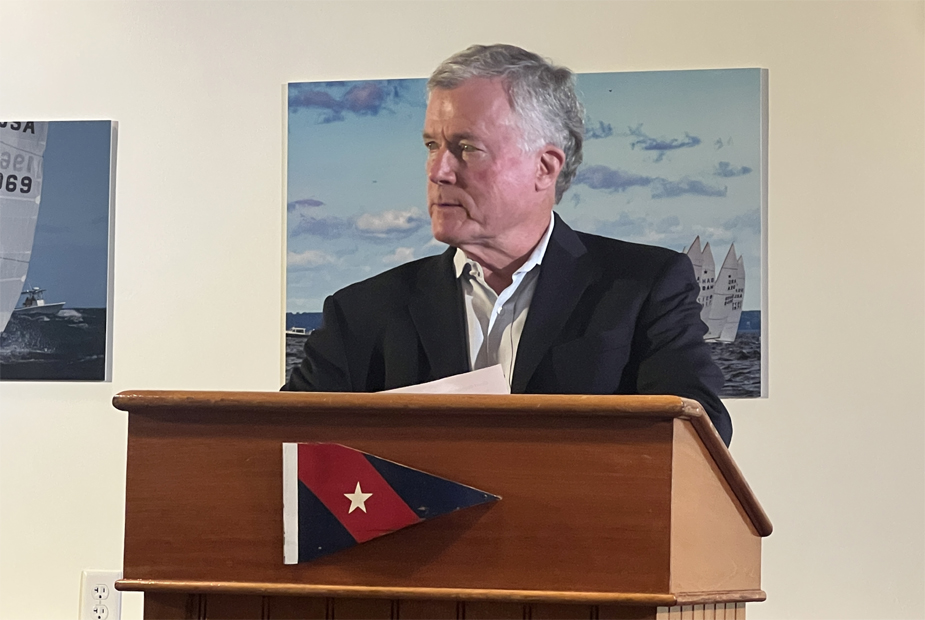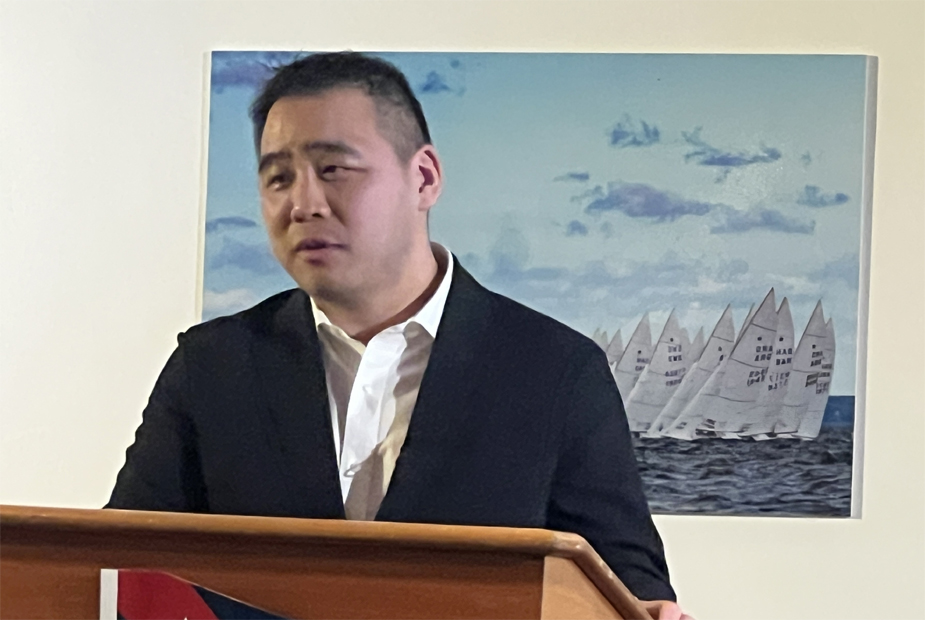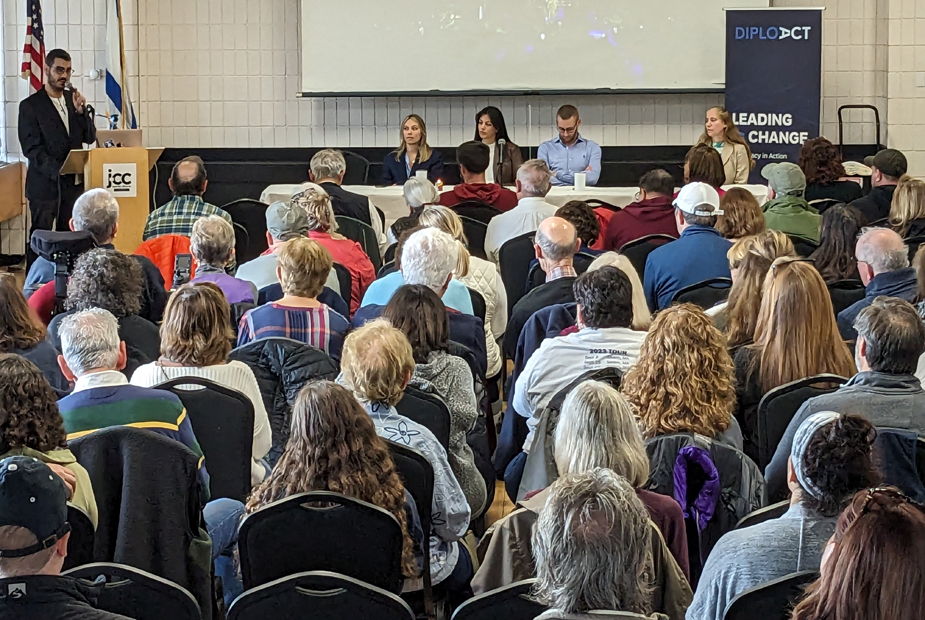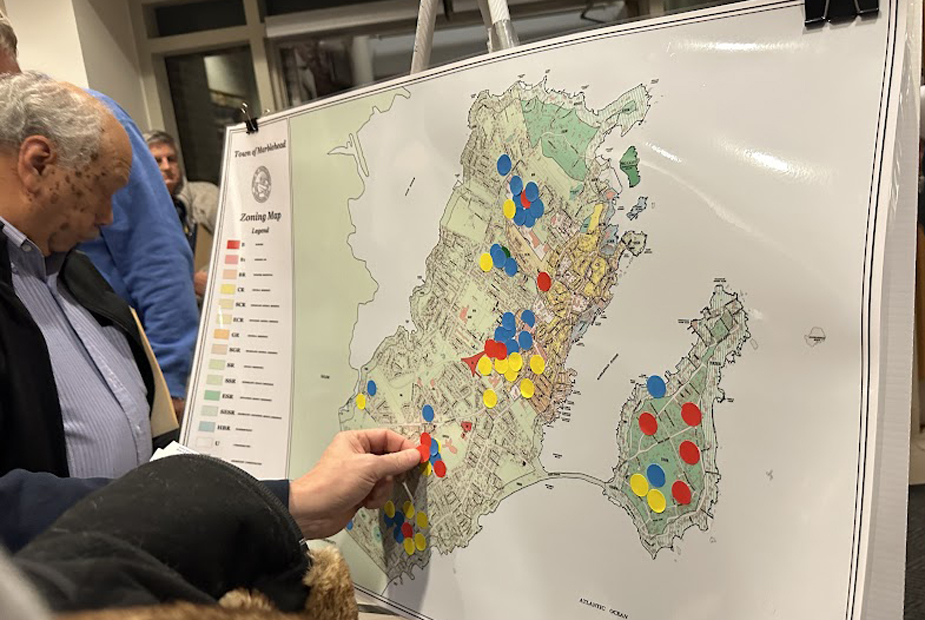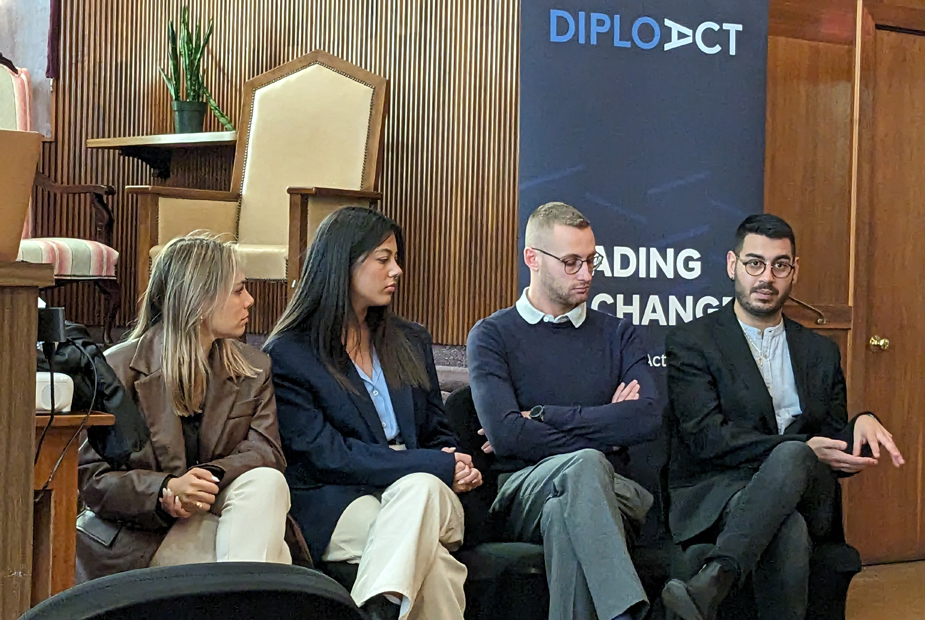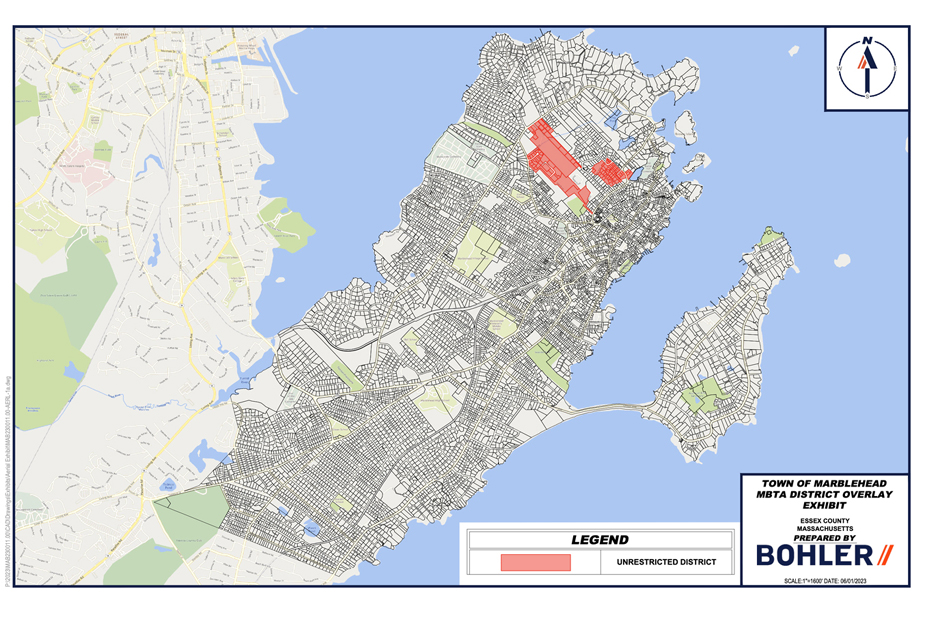Glimpses Into Promising Glioblastoma Trial: "Miles for Mary" Hosts Researchers at EYC
On a sunny day this October, Miles for Mary founder Bill Park brought out everyone from serious runners to walking families and everyone in between to participate in an annual 5K to benefit Mass General Cancer Center. Then, earlier this month, he invited decorated researchers in the arena of brain cancer – including the incurable glioblastoma – to the Eastern Yacht Club (EYC) to speak about the latest cutting-edge research in the field.
The Founding of "Miles for Mary"
Mary Park, Bill’s wife, died ten years ago, very soon after a diagnosis of glioblastoma. Shortly following her death, Bill and a group of dedicated friends and family founded Miles for Mary, the now-annual road race. The organization's mission is “to increase awareness around brain cancer, advance research into new treatment options, and provide hope for patients and families fighting such devastating diagnoses.”
Researchers Present Overview of Promising Clinical Trial
On November 7th, Drs. Elizabeth Gerstner and Brian Choi were featured speakers at a dinner organized in association with the Miles for Mary road race. There they presented an overview of their latest work, as well as what they envision for future potential therapies. While up against the excruciatingly complicated blood-brain barrier that makes treatment so much more complex than for many other types of cancer, Choi and Gerstner believe that, at least in part, future therapies will involve immunotherapy – where the body’s own mechanisms are used in treatment.
As is the case with many cancers, the treatment can be more toxic than the disease itself, which is a needle all oncologists must thread constantly. Specifically with certain radiation therapies in brain cancer, there can be notable “volume loss in the brain” after treatment. In spite of these impediments, Gerstner and Choi pointed out some efforts that show preliminary promise. Dr. Choi noted that it was only in 2010 that the Food and Drug Administration (FDA) first approved immunotherapy as a cancer treatment: in that case for prostate cancer. Much has changed since then, with both gene therapy and immunotherapy showing success or promise for therapeutics in a variety of diseases, including cancer. And immunotherapy is where the two doctors are focusing their efforts with respect to glioblastoma. On the horizon in 2023 is what Choi hopes will be Phase-1 in a Boston-area research study that will be using technology “from the future.”
Attendees Who Lost Loved Ones to Glioblastoma: Looking Ahead With Hope for New Therapeutics
Apart from the Park family, among those at the seminar were some who had lost loved ones to glioblastoma, and who are hopeful that research is advancing enough to one day prevent such devastation from striking others. “It is uplifting to see that Bill is so invested in keeping this alive,” said Kyle Wiley of Marblehead, whose sister, Karen Callahan Weeden, died following a battle with glioblastoma. One of the close-knit family’s other sisters, Kris Callahan, attended with her late sister’s husband, David, as well. “Dr. Gerstner was Karen's doctor,” said David, “and she was incredible.” The three wore pins with the smiling face of their sister, who they all said had a courageous and positive spirit in spite of her incurable disease. As one of five siblings and the devoted mother to her son Spencer, there was no shortage of love around her as she went through treatment. Karen passed away last October at the age of 61.
Gayle Sullivan, a Salem resident, attended the presentation to learn more about the future in glioblastoma science. She lost her husband, Stanley Cahill, a father of four and grandfather of six, to the disease in 2020. The Executive Vice President at Salem State University had been diagnosed only a year earlier. Though successful treatment options did not exist for her husband, Sullivan hopes that breakthroughs in therapeutics will be available in the near term.
Supporting the Cause
At the close of the research presentation, a grateful Bill Park told Marblehead Beacon that he was optimistic about the future of glioblastoma research, and hopeful that Miles for Mary will remain on the minds of people in the community. Giving may continue beyond the road race and seminar, and particularly as people contemplate their annual year-end donations, Park is hopeful for ongoing support. Anyone who wishes to donate may do so here.
Editor's Note: An earlier version of this story had two names reversed.

